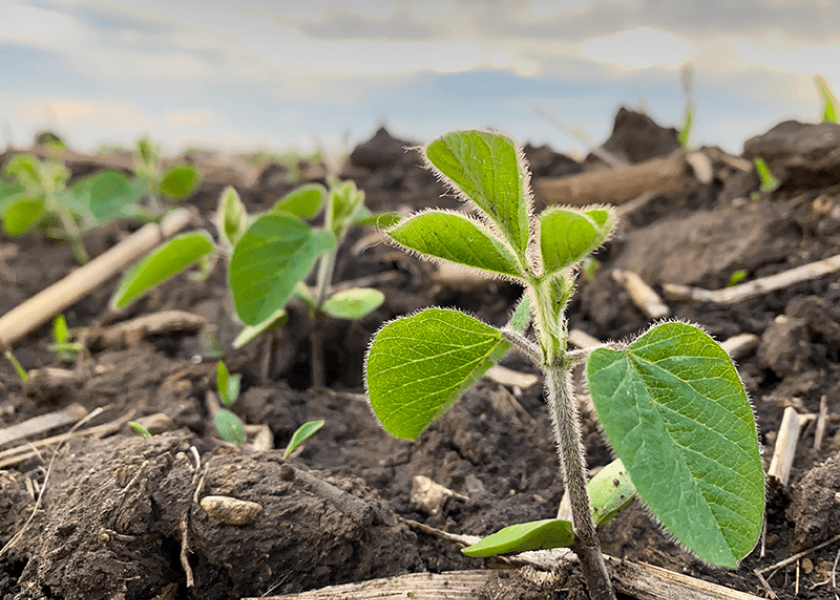Late-Maturing Soybeans Might Reduce Weeds, Based on Research from Illinois

Are weed pressure and changes in the climate unsurmountable? A new study from the University of Illinois looked at climate variability, yield losses and potential relief measures.
Researchers analyzed several factors leading to soybean yield loss in a 26-year herbicide study conducted across the state of Illinois.
Based on their findings, the researchers say inadequate late-season weed control—what they define as any application below 76%—was responsible for a 48% loss in yields. When drought and heat hit, the research showed high levels of weed control also didn’t stop significant yield loss to weeds.
The researchers say with the vast majority of U.S. soybean growing regions developing into a drier, warmer climate along with herbicide resistance, soybean yields will continue to decrease unless significant improvements are made to weed management systems.
“You need almost perfect weed control to avoid yield losses in hot, dry conditions. Unfortunately, we have a lot of weed escape in soybean,” says Marty Williams, USDA-ARS ecologist and affiliate professor in the Department of Crop Sciences at Illinois.
Martin Williams, the lead author of the study, says later-maturing soybeans might be able to reduce the risk of incomplete weed control in a more variable climate.
Science at Work
A new weed control system may help to fight weeds, particularly broadleaf weeds and grasses.
Bosch high-tech cameras and Xarvio agronomic intelligence are combined in the Smart Sprayer capable of photographing weeds at more than 1,000 per second.
With cameras spanning the entire operating range of the sprayer, the software and hardware identify the weed, signal a set of nozzles to spray the exact product needed on the weeds, and records the information in real time for farmer review within milliseconds.
The joint venture between BASF and Bosch is in the proof-of-concept stage for U.S. growers. The companies hope to have a limited introduction in 2023.
Read more on sprayers:
> Joint Venture Brings ‘Smart Spraying Solution’ To Farmers







